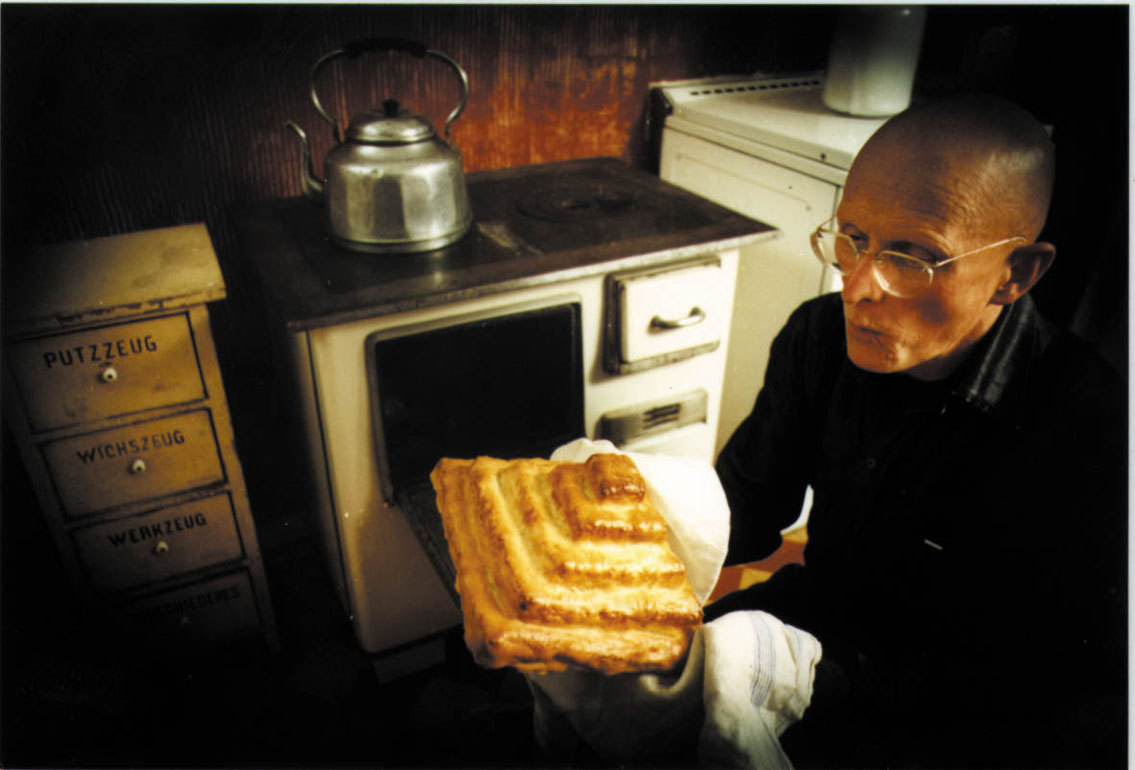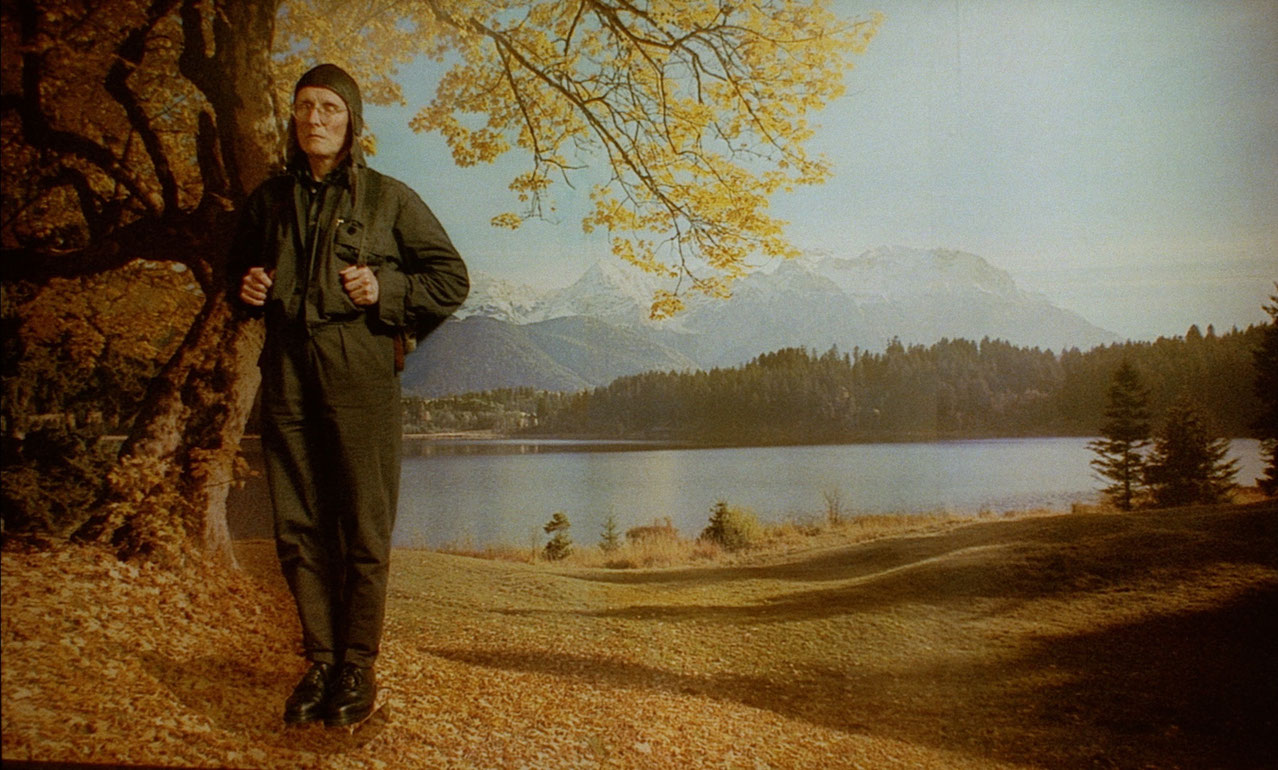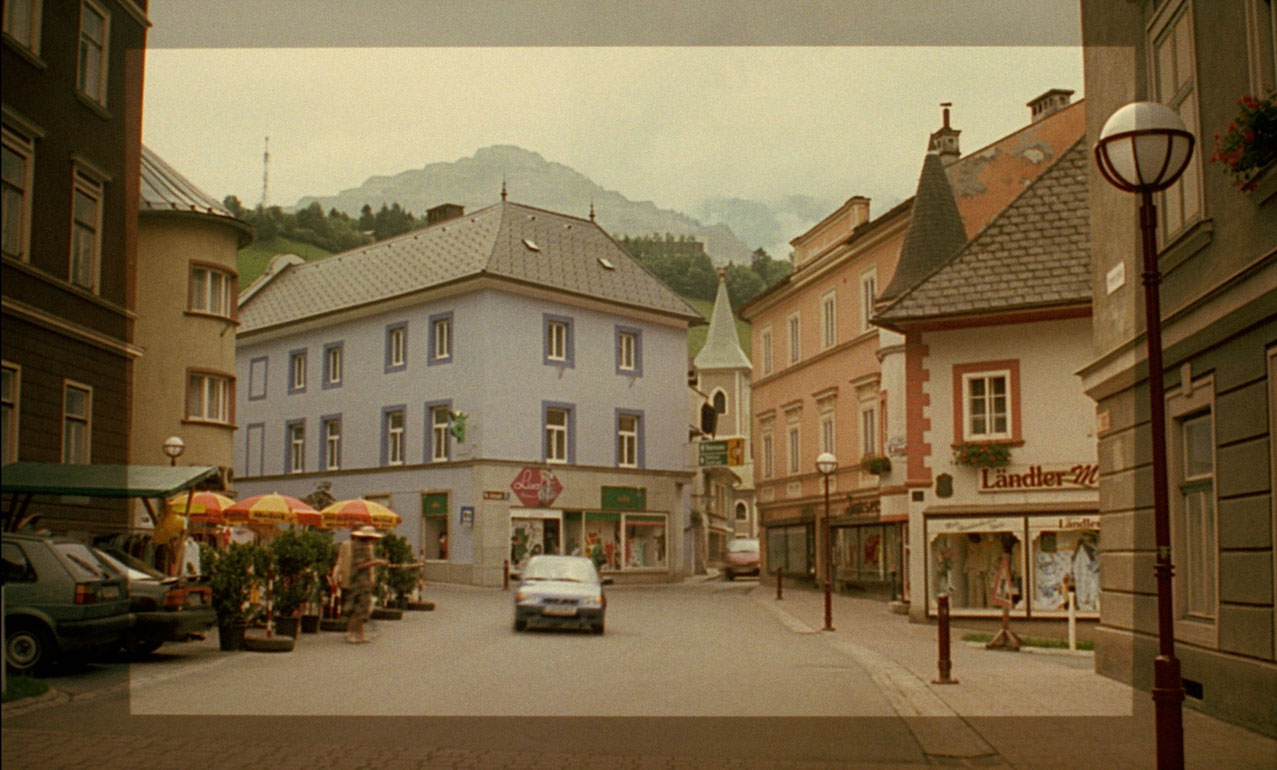In the Beginning Was the Eye
The camera acts as a winking eye spying into a poet´s workroom. Books are stacked to the ceiling, and the poet moves agilely between typewriters and shelves, leafs through books or, like Alice, enters a looking-glass. Bodo Hell cuts a restless figure, a man of the word setting off on a journey into the images - or behind them.
Dominated by its artificial gaze from the very beginning, this film becomes even more technically complex in its middle: In a rhythmic montage, innumerable postcard motifs rain down upon the viewer, which the protagonist then enters as if they were real landscapes.
(Dominik Kamalzadeh, Der Standard, Vienna)
Bady Minck re-evaluates irreverent worlds of images in the form of thousands of postcards whose ardently kitschy views of Austria are re-animated by the avant-garde filmmaker. Her cinematic narrative of a poet´s search for images provides the framework for a critical reconquest of an idyllic Alpine landscape. Using breathtaking montage work and elaborate film technology, Bady Minck penetrates deep into the sultry colour of the postcards without succumbing to their camped-up charms.
(Daniel Kothenschulte, Frankfurter Rundschau)
In Minck´s race of word against image, the image is the obvious winner: Single frame shots, dissolves and language employed as a musical element in a fast-paced composition of words and images are combined to create a film which goes against conventions and expectations. In the Beginning Was the Eye is a film about story-telling and remembering, the volatility of language and images, and about the tricks played on us by our senses - a philosophical consideration of reproduction and reality, identity, nature and civilization.
(Irmgard Schmidmaier, d´Land, Luxembourg)
A poet in his refuge, surrounded by books and notes, at the mercy of words. A mountain range forms on the empty pages of a book, inviting the poet and us on a journey through the countryside, its history revealed to be a series of innumerable postcards, one fading to the next. The viewer-traveller himself becomes part of this spatial composition. At the end his own image is all that remains: two-dimensional and at the mercy of a nature which has radically withdrawn from the observer as a view.
(Robert Buchschwenter)
The film creates a typology of movement which talks from the very heart of the cinema multiple exposures, single frame techniques, time-lapse and slow motion have assumed an anomalous role that functions in ways completely contrary to standardized expectations and habits of seeing. The principle of filmic movement is changed by remarkable images which have never been seen before.
(Marc Ries)
--> watch trailer on youtube
--> www.badyminck.com
Im Anfang war der Blick
2003
Austria, Luxembourg
45 min



